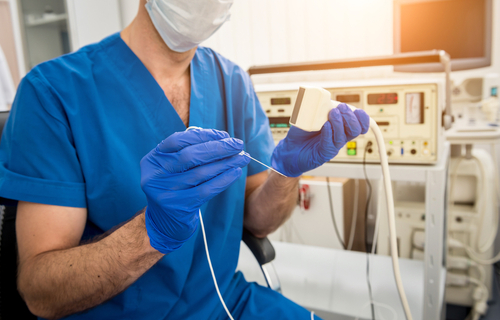Electrophysiology
Electrophysiology or EP examines the electrical system of the heart. Electrophysiology studies are used to diagnose exactly where the irregular heart beat (arrhythmia) is coming from. Arrhythmia can be fixed using catheter based ablation procedure or by implanting a device, such as a pacemaker/ defibrillator.
Electrophysiology Study:
These studies help your physician:Assess the need for a pacemaker or implantable cardiac defibrillator (ICD)
Determine your risk for future heart problems, including sudden cardiac death
Evaluate whether medicine is effectively controlling abnormal heart rhythms
Pinpoint arrhythmias that start in the heart and help identify the best treatment.
Once your physicians know the type of irregular heartbeat you have, they can determine the best treatment plan for you.
Reasons for Electrophysiology:
If you have irregular heart rhythms, you may experience dizziness, shortness of breath or fainting. An irregular heartbeat may also be fatal so it is important to see medical attention.Slow heart rhythms (bradycardia) may require a pacemaker to help your heart beat properly.
Rapid heart rates (tachycardia) may respond to a catheter based radiofrequency ablation (RFA), which is designed to destroy the abnormal electrical pathway, allowing the heart to beat normally.
Other abnormal rhythms may need a device called an implantable cardiac defibrillator to stabilize your heart rate and extend your life.

